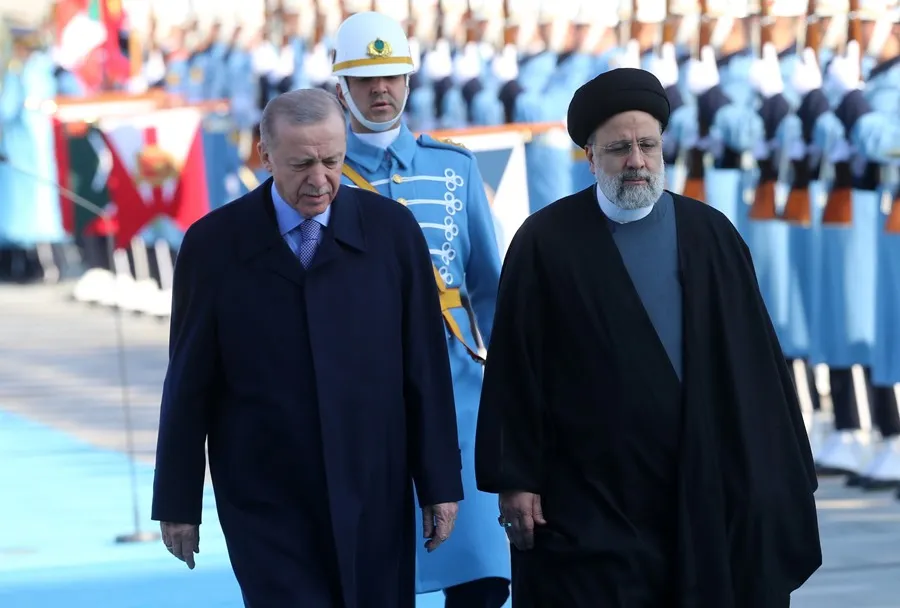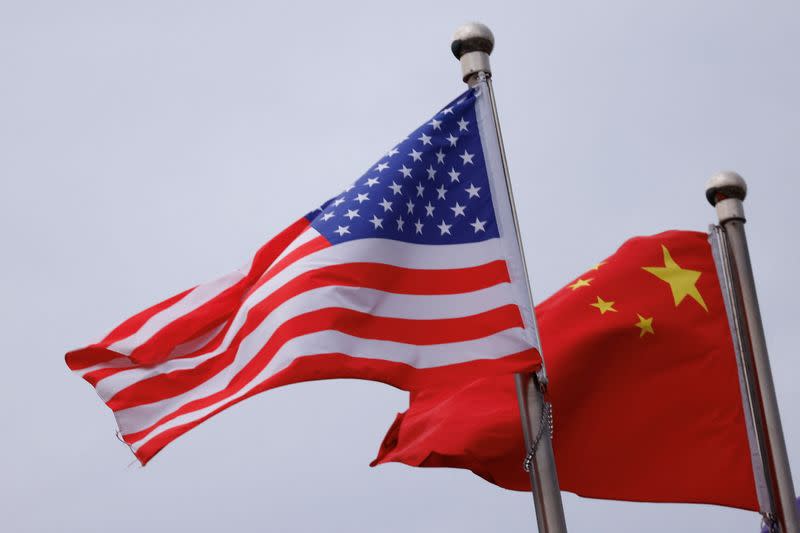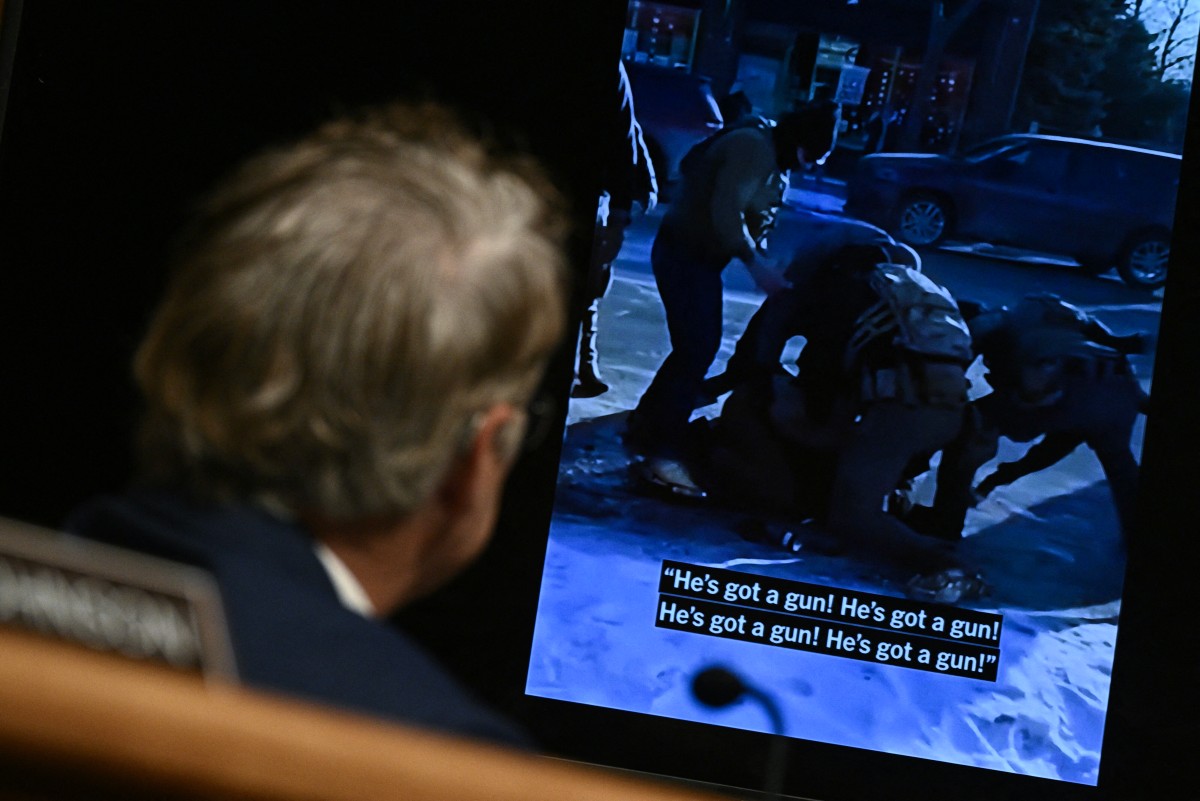International
Widespread regret and condolences for the death of Iranian President Ebrahim Raisí

The death in a helicopter accident of the president of Iran, Ebrahim Raisí and the Minister of Foreign Affairs, Hosein Amir Abdolahian, has generated great regret in Arab countries and widespread condolences in the West.
The helicopter in which Raisí and other authorities were traveling disappeared for unexplained reasons this Sunday when it was returning from the city of Tabriz and the aircraft was found today in a mountainous area of the Varzeqan region, in Eastern Azerbaijan.
Among the Arab countries, the Lebanese government decreed on Monday three days of official mourning for the death of President Raisí.
Lebanon maintains good relations with Iran, one of the foreign powers that are considered most influential in the nation, due in large part to the close collaboration between Tehran and the Lebanese Shiite group Hizbulá.
The president of Syria, Bashar al-Asad, expressed his condolences and thanked Ebrahim Raisí for his work to strengthen the ties between the two countries, important allies at various levels.
The president of Iran had made a historic visit to Damascus a year ago, the first of an Iranian leader of his level since 2010, a year before the outst of the war in Syria.
Iran is a key route for supplying oil derivatives and other goods to Syria, subject to a series of international sanctions that limit its trade activities, and also maintains a strong armed presence in Syrian territory, where Iranian advisers and pro-Iranian militias are present.
For his part, the president of the Palestinian National Authority, Mahmud Abbas, on Monday offered his condolences to the Islamic Republic of Iran after the fatal accident and that of Tunisia, Kais Said, also expressed “great sadness and pain.”
Meanwhile, the president of Turkey, the Islamist Recep Tayyip Erdogan, expressed his condolences for his “esteemed counterpart and brother” Raisí and highlighted the efforts of the deceased “for the peace of the Iranian people and our region during his term.”
One of the most heartfelt reactions was that of the Lebanese Shiite group Hizbulá, a close ally of Tehran.
“For us he was an older brother, a strong supporter and a firm defender of our cause, and of the cause of the nation, especially Jerusalem and Palestine. And a protector of the Resistance movements and its mujahideen in all the positions of responsibility he held,” Hizbulah said in a statement.
The Lebanese group is part of an informal anti-Israeli alliance led by Tehran known as the “Axis of Resistance”, several of whose members hold fronts of support for the Palestinian Islamist movement Hamas in the framework of the war that began seven months ago in Gaza.
Hizbulah, who leads one of those fronts against Israel from southern Lebanon, allegedly receives strong arms and logistical support from his Iranian allies.
And the de facto government of the Taliban in Afghanistan also expressed its condolences on the death of Ebrahim Raisí, who was part of a Cabinet determined to build good relations with the fundamentalists despite occasional incidents.
Under the command of Raisi, who came to power in 2021 and was one of the favorites to succeed the supreme Iranian leader, Ali Khamenei, Tehran became one of the few countries interested in improving bilateral relations with the Taliban when they took power in Afghanistan that same year.
The Emir of Qatar, Tamim bin Hamad al Thani, and the Shiite Houthi rebels of Yemen expressed their “sincere condolences” to Iran on Monday in two messages.
Qatar is one of the closest Arab countries to Iran and has mediated on several occasions between the Government of Tehran and other countries, in particular the United States, to bring views on issues such as the nuclear program or that of Iranian ballistic missiles.
The Houthis of Yemen are an Iran-backed Shiite political and religious movement that took up arms in 2014 against the internationally recognized Yemeni government, and since then they control large areas of the north and center of that country in the south of the Arabian Peninsula.
In recent months, Houthis have managed to attract international attention for their attacks with ballistic missiles and drones, allegedly Iranian, against Israeli merchant ships or ships linked to Israel in the Red Sea, in retaliation for that country’s war in Gaza.
Russian President Vladimir Putin today expressed his condolences for the “enormous tragedy” of Raisi’s death, whom he described as a “friend.”
“As a true friend of Russia, he made a valuable personal contribution to the development of good-neighbourly relations between our countries and made great efforts to bring them to the level of strategic partnership,” the Russian president added.
Russia and Iran have strengthened their relations in recent years, especially since the beginning of the war in Ukraine, since Tehran supplies Moscow with the Shahed drones with which it bombs the territory of the neighboring country.
For his part, Chinese President Xi Jinping assured that his people “have lost a good friend.”
Xi highlighted the “important contributions of the Iranian president to the security and stability” of his country, as well as to “its development and prosperity,” according to a spokesman for the Foreign Ministry. In this line, the Chinese leader recognized Raisí’s efforts to “strengthen and develop the integral strategic relationship” between China and Iran, ties that he believes will “continue to be strengthened.”
In 2021, China and Iran sealed a 25-year economic cooperation agreement that broadly provides for Chinese investments in the Iranian energy and infrastructure sectors.
The president of the European Council, Charles Michel, expressed condolences for the death of Raisí, Minister Abdolahian and his entourage. “Our thoughts are with the families,” he wrote in a message on his social network account X.
The head of European diplomacy, Josep Borrell, joined with a statement in which he also conveyed his condolences to the rest of the deceased authorities, their relatives and “the affected Iranian citizens.”
Meanwhile, the NATO spokeswoman, in a message on social network X wrote: “Our condolences to the people of Iran for the death of President Raisí, Foreign Minister Amir Abdolahian and other people who died in the helicopter accident.”
Japan also sent its condolences to Iran. “There is nothing sadder than the news of a sudden death like this. We convey our condolences to the Government of Iran and its people, as well as to the families of the victims,” said Japanese government spokesman Yoshimasa Hayashi.
International
Florida judge sets 2027 trial in Trump’s $10 billion lawsuit against BBC

A federal judge in Florida has scheduled February 2027 for the trial in the lawsuit filed by U.S. President Donald Trump against the BBC, in which he is seeking $10 billion in damages for defamation.
Trump accuses the British broadcaster of airing a misleading edit of a speech he delivered on January 6, 2021, which, he says, made it appear that he explicitly urged his supporters to attack the U.S. Capitol in Washington.
The president filed the suit in December in federal court in Florida, alleging defamation and violations of a law governing business practices when the program was broadcast ahead of the 2024 election.
Trump is seeking $5 billion in damages for each of the two claims.
Lawyers for the BBC unsuccessfully asked the court to dismiss the case, arguing that Trump had not suffered a “legally recognizable harm,” since the investigative program Panorama, which included the edited footage, aired outside the United States.
International
Head-of-state diplomacy key to guiding China–U.S. ties, Beijing says

Head-of-state diplomacy plays an irreplaceable strategic guiding role in China–United States relations, Chinese Foreign Ministry spokesperson Lin Jian said on Thursday during a regular press briefing, when asked about high-level exchanges between the two sides.
Lin added that in a recent phone call, U.S. President Donald Trump once again expressed his intention to visit China in April, while Chinese President Xi Jinping reiterated his invitation.
Both sides remain in communication regarding the matter, the spokesperson said.
Lin noted that the essence of China–U.S. economic and trade ties lies in mutual benefit and win-win outcomes.
“Both parties should work together to implement the important consensus reached by the two heads of state, injecting greater certainty and stability into China–U.S. economic and trade cooperation, as well as into the global economy,” he said.
International
Trump administration to end special immigration operation in Minnesota

The administration of Donald Trump is bringing to a close its special operation targeting illegal immigration in the northern state of Minnesota, border czar Tom Homan announced Thursday, following weeks of unrest and the fatal shootings of two activists by federal agents.
Thousands of federal officers had been deployed to Minnesota in December to carry out large-scale raids against undocumented immigrants.
The operations triggered strong reactions from residents and advocacy groups, leading to daily confrontations and the deaths of two people who were shot by federal agents.
“I proposed, and President Trump agreed, that this special operation should end in Minnesota,” Homan said during a press conference in the state capital, Minneapolis.
“A significant drawdown began this week and will continue into next week,” he added.
Homan indicated that similar enforcement efforts could be launched in other cities.
“Next week we will redeploy the agents currently here back to their home stations or to other parts of the country where they are needed. But we will continue to enforce immigration laws,” he said.
-

 Central America4 days ago
Central America4 days agoGuatemala isolates Barrio 18 leader after attacks that killed 11 police
-

 International3 days ago
International3 days agoU.S. Health Department says CDC grants no longer match agency priorities
-

 International1 day ago
International1 day agoOver 50 Civil Groups Urge House to Impeach DHS Secretary Kristi Noem
-

 International2 days ago
International2 days agoICE Arrests Reach 379,000 Under Trump, Testimony Shows Amid Minnesota Shootings
-

 Central America1 day ago
Central America1 day agoGuatemala to Phase Out Longstanding Medical Cooperation Agreement with Cuba
-

 International3 days ago
International3 days agoDespite homicide drop, overall deadly violence remains high in Mexico: study
-

 International2 days ago
International2 days agoSheinbaum Urges Mexico to ‘Jealously’ Guard Sovereignty at Air Force Anniversary
-

 International2 days ago
International2 days agoMEPs Approve Plan That Could Fast-Track Rejection of Some Asylum Claims
-

 International2 days ago
International2 days agoJet Fuel Crisis Hits Cuba: Flights Disrupted, Air Canada Cancels Services
-

 International1 day ago
International1 day agoNew York’s New Archbishop Names Óscar Romero as His Favorite Saint
-

 International2 days ago
International2 days agoMexico Rises Slightly to 141st in Global Corruption Perceptions Index 2025
-

 International10 hours ago
International10 hours agoHead-of-state diplomacy key to guiding China–U.S. ties, Beijing says
-

 International10 hours ago
International10 hours agoTrump administration to end special immigration operation in Minnesota
-

 International10 hours ago
International10 hours agoFlorida judge sets 2027 trial in Trump’s $10 billion lawsuit against BBC
-

 International1 day ago
International1 day agoExclusive Tucson Neighborhood Shaken by Disappearance of Savannah Guthrie’s Mother
-

 International2 days ago
International2 days agoChile Unveils Latam-GPT to Give Latin America Its Own AI Model


























